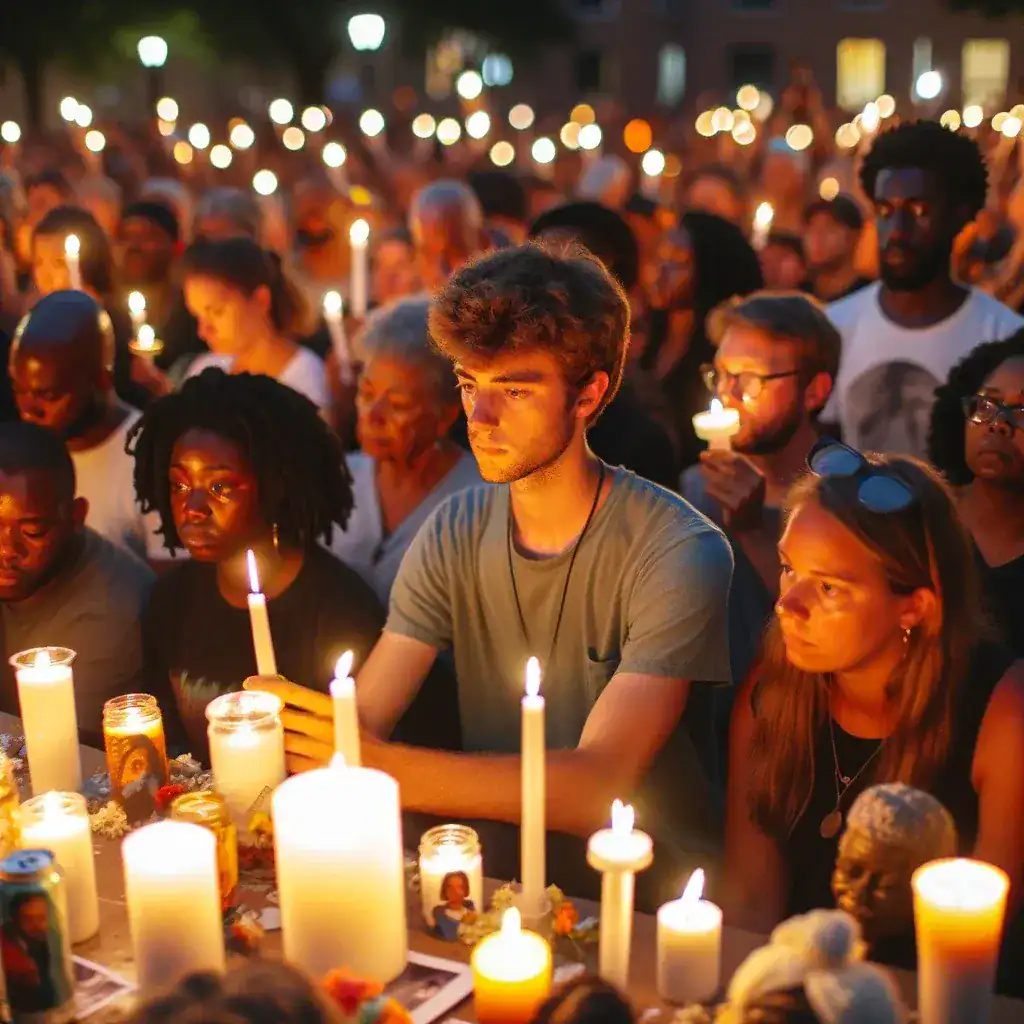Zion Carr’s Battle with Mental Anguish in the Wake of Police Brutality
In the quiet of an early October morning in 2019, the life of 8-year-old Zion Carr was irrevocably altered. The fatal shooting of his aunt, Atatiana Jefferson, by Fort Worth police officer Aaron Dean, while responding to a welfare check, not only claimed Jefferson’s life but also inflicted deep psychological scars on young Zion.

Atatiana Jefferson, a 28-year-old African American woman, was inside her home, spending time with her nephew, when the tragedy unfolded. A neighbor, noticing an open door at Jefferson’s residence, called for a welfare check. This call set off a chain of events leading to an outcome that would resonate with profound implications on police accountability, racial disparities, and the impact on victims’ families.
The ensuing response from the Fort Worth Police, led by Officer Dean, was marked by a tragic misuse of force. Body camera footage revealed a harrowing scene where Dean, without identifying himself as police, shot Jefferson through a window after merely shouting a command to show hands. Dean’s actions, a stark portrayal of police brutality, drew widespread condemnation, and he was later charged with murder and eventually convicted of manslaughter.
For Zion Carr, the direct witness to his aunt’s shooting, the trauma was both immediate and profound. The lawsuit filed by his mother, Amber Carr, articulated the depths of Zion’s suffering, detailing his experience of “anxiety, terror and agony”. This tragic event, coupled with the subsequent passing of his mother in 2023, compounded the mental and emotional distress faced by Zion.
In acknowledging the gravity of Zion’s ordeal, the City of Fort Worth approved a $3.5 million settlement. This settlement, while aiming to cover Zion’s immediate needs and future education, also serves as a testament to the enduring impact of such traumatic experiences on young witnesses. It underscores the necessity of addressing the long-term effects of police misconduct on individuals, particularly minors.
The case of Atatiana Jefferson and the ensuing trauma experienced by Zion Carr spotlight the broader issues of police accountability and the consequences of misuse of force. The Fort Worth City Council’s decision to approve the settlement on what would have been Jefferson’s 33rd birthday adds poignancy to the narrative, emphasizing the ongoing impact on her family and the community. This action signifies a step towards recognizing the need for accountability and restitution in cases of police misconduct, particularly when resulting in loss of life and profound impact on the lives of those left behind.
Furthermore, the case has been a catalyst in eroding public trust in law enforcement. The community’s reaction, including statements from the Fort Worth Mayor and the National Association for the Advancement of Colored People, reflect a broader societal concern over the unacceptable nature of such incidents.
While the settlement for Zion Carr represents a measure of justice and support, it also highlights the essential need for ongoing dialogue and action regarding police conduct, community trust, and the support for those affected by such profound tragedies. The legacy of Atatiana Jefferson, through the experience of her nephew Zion Carr, thus becomes a poignant reminder of the work that remains to be done in addressing issues of police brutality and its far-reaching impact on individuals and communities alike.

